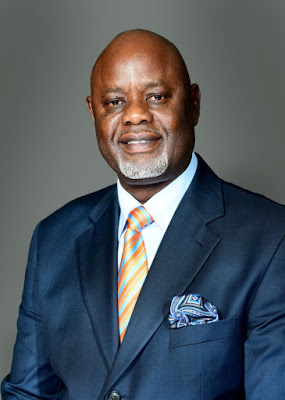Greg Ogbeifun@70: Industry stakeholders celebrate shipowner, discuss shipping sector advancement
...Seek favourable government policy, as finance remains a problem
Shipping industry bigwigs who in a virtual gathering celebrated Engr. Greg Ogbeifun at 70 years on Friday, discussed several issues affecting the sector and looked at possible solutions in a symposium titled ‘The Establishment of Nigerian Global Trading Fleet.’
Speakers at the event included Mrs. Margaret Orakwusi, the founder and Chief Executive Officer of the MORBOD GROUP, Barr (Mrs) Mfon Usoro, the immediate past Secretary General of the Memorandum of Understanding on Port State Control for West and Central African Region, and Mrs Dabney Shall- Holma, Chairperson @Sealink Promotional Shipping Company (SPV) and a retired Director of Commercial Shipping Services at the Nigerian Shippers’ Council.
In his opening remark, Engr. Ogbeifun said it was disturbing for Nigeria to continue to depend entirely on other countries for her shipping needs for wet, dry and specialized cargoes since the collapse of the Nigerian National Shipping Line (NNSL).
He said that there was yet a strategy to address the re-establishment of a national shipping capacity through a private sector driven Nigerian global trading fleet.
He, however, added that: “I believe that there is a need to provide a forum where Government, the Maritime industry, intellectuals and international experts can come together to identify various options that will enable Nigeria to review and revitalize her national shipping policy and capacity. This symposium titled, ‘The Establishment of Nigerian Global Trading Fleet’ is meant to provide that platform.”
Ogbeifun disclosed that a subsidiary of his company which handles a shipyard, had signed expansion agreement with a consortium of two companies- one in Canada and the other in Holland.
He said: “This shipyard is going to give hope to the future of the maritime in this country. It has the capacity to turn around vessels with tonnage of 7500 and above. It has the capacity not only to repair, but to build ships in this country. I will be dedicated to it until it is actualised.”
Speaking, Mrs Orakwusi, who moderated a session of the panel discussion, lamented that as many ships that called at the nation’s ports based on data for a given period, none was flagged Nigerian. She said: “We received this data from the NPA showing that in the Q1 of 2015, a total of 5139 ocean-going vessels called at Nigeria’s ports. However, and sadly, no Nigerian -flagged ship participated in this lucrative trade.”
She also noted that it was difficult for a Nigerian shipowner to compete favourably with their counterparts in other countries, as they contend with high cost of getting finance, “How can you compete favourably with people who have access to cheap funding borrowing at single digit of two per cent when you are struggling to borrow at 11 per cent or even up to 20 per cent?”
In his contribution, Alh. Aminu Umar, CEO of Sea Transport Company, also complained of financing challenges. He said that financial institutions like banks had yet understood a reason why they should invest in the sector.
He also cited security challenges that “We have a very tough environment that we are working in and we all know. There is no shipowner who sleeps well, because of the challenges of security of not only your ship, but of the people who work for you on board the ship.
“This is a challenge which investors and people who even cover the investment, like the insurers, are very skeptical about, to cover some of your ships that trade in this industry or within this environment.”
But, Umar also disclosed that the Nigerian National Petroleum Corporation (NNPC) has since the beginning of 2021 included a clause in its bidding terms, making it mandatory that Nigerian shipowners be included in carriage of cargoes coming for the nation.
Contributing also, the Executive Secretary/CEO of the Nigerian Shippers’ Council, Hassan Bello, who is also Chairman of the National Fleet Implementation Committee (NFIC) said it was sad that no Nigerian shipping company was part of the $9.1 billion spent in 2015 on freight for lifting Nigeria’s crude oil.
According to Bello, government must become deliberate with policies that would support the national fleet development, a project that must be done right through the private sector initiative.
He also said that the country’s flag registry must be revitalized, while shipyards must also be upgraded to be able to provide needed services for ships, if a fleet gets operational.
Some of the immediate tasks in Mrs Usoro’s paper titled ‘Growing Nigeria’s Seagoing Merchant Fleet’ include that the federal government should consider a national transport policy, implementation of fiscal incentives as submitted by the NFIC.
The paper highlighted that the sector had yet any fiscal incentives even as the 2019 data from the National Bureau of Statistics (NBS) show that the total value of the marine transport component was N33.7 billion from the N36.1 billion of of Nigeria’s merchandize trade for that year.
It also showed that Nigerian fleet by flag registration was 726 ships from Africa’s 7, 483, while the world’s figure was 98,140 ships, credited to UNCTAD Report of 2020.

